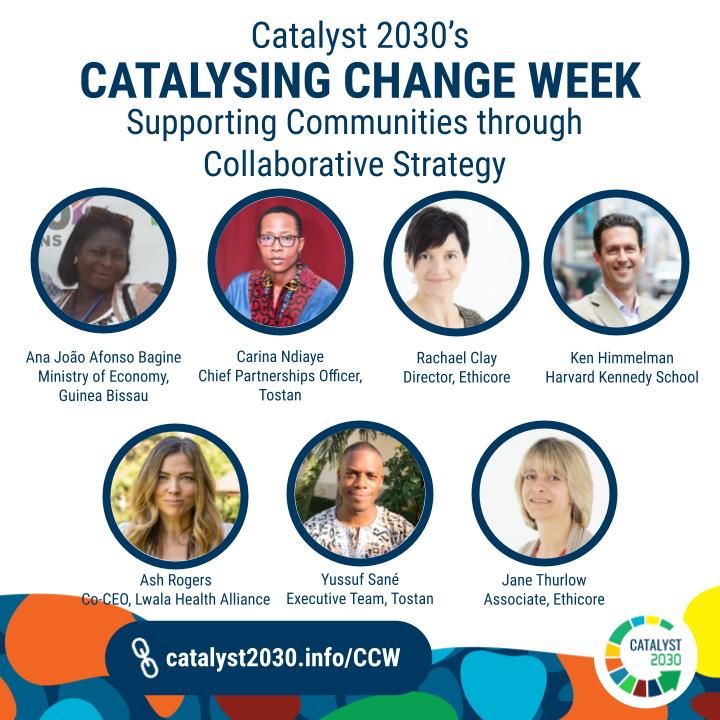
During Catalysing Change week 2023, we co-facilitated an interactive webinar on co-creating strategy with our partners at Tostan and Lwala. Rachael shared thoughts on the imperative and potential of participatory approaches to strategy development in turbulent times. Here is a summary…
1. First let’s just look at trends for strategy development.
- Strategy always operates with uncertainty. But in an increasingly disrupted world (pandemics, conflict, climate shocks) we need to shift from traditional models with a structured plan for the longer-term to more agile approaches to strategy. That means you need to…
- Keep focused on external – embrace forces of disruption. Identify the big trends (and likely predictable surprises) to anticipate and respond to.
- Choose your big bets (and your no regrets (things that you would do no matter what)).
- In an agile strategy you set ambition and goal, general direction and parameters for impact to guide decision making, but allow space to respond to opportunities/challenges.
- Keep focused on impact. Keep that question central.
- Key for today is that a participatory approach is essential for an agile strategy to live within an organisation and for stakeholders to operate without too much long-term detail/guidance.
2. Participatory approaches, at their best, can be a process of empowerment for communities and part of the impact process.
- Nominal (passive) and instrumental (limited and targeted) approaches are giving way to more representative (active, voice) and transformative (means and an end) approaches to community engagement in strategy development.
- Those organisations that have structurally integrated community in their own governance and decision-making are well set up for more transformative engagement of communities in their strategies.
- Structural tools for active and ongoing engagement with communities, will enable your strategy process to build from your work together. See examples from Lwala and Tostan.
3. There are many approaches and innovations to enable participation in strategy development (and its ongoing evaluation and adaptation during these turbulent times).
- Participative structures include user groups, community stakeholder groups, consultation with trusted gate-keepers (e.g., community/religious leaders), community advisory boards (to inform and advise on strategy and planning over an extended period of time) and deliberative structures (e.g., citizen assemblies or juries) to engage communities in decision making around complex issues (used for government policy and strategy development).
- Co-creation approaches, using innovation methodologies and embracing diversity of inputs are particularly helpful in early stages of strategy exploration.
- Technology can help support insight and engagement
- Remote survey tools, SMS surveys and WhatsApp polling, including 60 decibels, Mobenzi Mobile app, and Engage Spark.
- Digital engagement platforms have been used by government and service providers to engage communities around service development strategies, but are more suited to urban settings, e.g., Citizen Lab, used by Peñalolén, a Chilean Santiago commune, to develop a participatory budget for the local plan.
- Participation doesn’t end when a strategy is written. Participative approaches to evaluation enable ongoing learning for communities, stakeholders and partners, e.g.:
- The most significant change methodology, which engages community members and stakeholders to tell their personal stories of change, share and analyse how change is happening.
- Journalling over the course of the strategy period which are then analysed for patterns of change.
Overall – the strategy process is an extention of the organisation’s model for working with community. Making strides to structurally engage communities will ensure your strategy development and implementation is adaptive, and responsive in these turbulent times.
By Rachael Clay
The session, in partnership with Catalyst2030, Tostan, Lwala and Harvard Kennedy School Center for Public Leadership shared experiences, approaches and learning. You can watch the full webinar here: Co-Creative Strategy: Supporting Communities through Collaborative Strategy – Catalyst 2030
